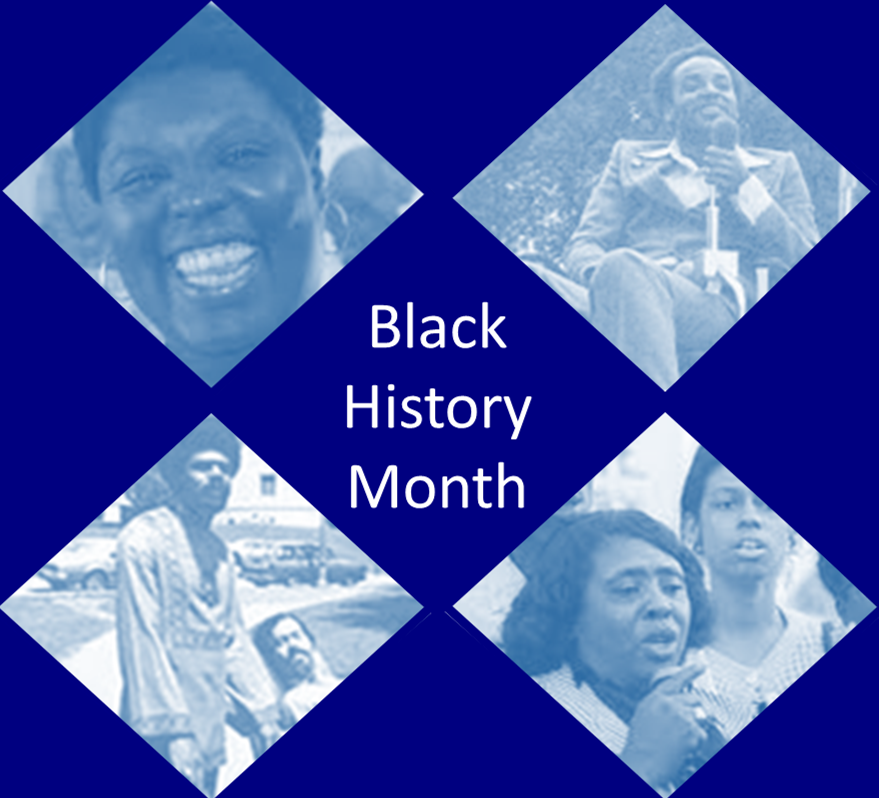Disability is a part of the lived experience for all people, including people of the Black community. As we celebrate Black History Month, we want to acknowledge some of the many civil rights activists with disabilities from the Black community. Their contribution to the fight for equity and civil rights should never be forgotten.
Fannie Lou Hamer (1917 – 1977) fought for voting rights and employment equity for Black Americans. A polio survivor, Fannie would gain additional disabilities as a result of being beaten when arrested for her activism in 1963. During the arrest she was beaten so severely that she sustained kidney damage, a permanent limp, and a blood clot behind one eye. In 1961, she was given a hysterectomy, preventing her from having children, without her consent during a surgical procedure, a common practice as a part of the Eugenics movement and forced sterilization. Fannie was 45 when she learned she had the right to vote. The next day, she and 17 other members of the Black community traveled to the courthouse to take the then required literacy test required to vote. This test, designed to deter members of the Black community from voting, included questions about the constitution and laws in Mississippi. Fannie went three times until she passed the test and was registered to vote. She a co-founder of the Mississippi Freedom Democratic Party in 1964, and helped form the National Women’s Political Caucus, which encouraged women’s participation in politics. Fannie ran for Congress. Although she was not elected, her campaign exposed the systemic racism in Mississippi. Learn about the Fannie Lou Hamer Leadership Program through AAPD’s REV UP campaign.
Donald Galloway (1938 – 2011) worked internationally to improve the quality of life for people of color and people with disabilities. A part of the Center for Independent Living movement in Berkeley, California, Donald advocated for inclusion of people of color within independent living communities. He fought successfully to end discriminatory laws which prevented people with disabilities from becoming employees of the U.S. Foreign Service. He became the first blind person to be appointed as the Peace Corps Director in Jamaica. He took part in an informational exchange between people with disabilities in the U.S. and Northern Ireland through the U.S. State Department. In 1991, Donald was refused his right to serve on a jury for the D.C. Superior Court when he arrived in the courtroom with his guide dog. He sued the District and in 1993, it was ruled that automatic disqualification of a person who is blind from jury service was unconstitutional.
Brad Lomax (1950 – 1984) was a member of the Black Panther party and a disability civil rights activist. He was a leader in both civil rights fights. Brad was a part of the group that organized the first African Liberation Day demonstration, bringing tens of thousands of protesters to the National Mall in 1972. He advocated for curb cuts and accessible public transportation for people with disabilities. He was an instrumental leader, working among other well-known activists such as Judy Heumann, in planning and executing the Section 504 Sit-In at the San Francisco Federal Building. This protest demanded enforcement of the Rehabilitation Act of 1973 and is still the longest sit-in in the history of the U.S. Brad worked with Black Panther party members to have provisions delivered to his fellow protesters daily.
Lois Curtis (1967 – 2022) is best known for her role as the lead plaintiff in the 1999 Olmstead v. L.C. Known as the Olmstead decision, this case upheld that the ADA and Section 504 of the Rehabilitation Act provided protection against involuntary institutionalization and upheld the right of people with disabilities to be integrated into their communities. This U.S. Supreme Court ruling has transformed state-based services, moving away from institutional models which segregate people with disabilities to integrated settings and more community-based supports. The Olmstead decision represents the first time the court ruled that unnecessary institutionalization is a violation of civil rights. A person with developmental and mental health disabilities, Lois spent nearly 20 years in institutions, starting when she was just a child despite a desire to be a part of her community. Her case has improved the lives of countless others living with disabilities. She never stopped advocating for others who shared her experience.
We hope you join us in celebrating the lives and contributions of these great leaders from the Black Community.
